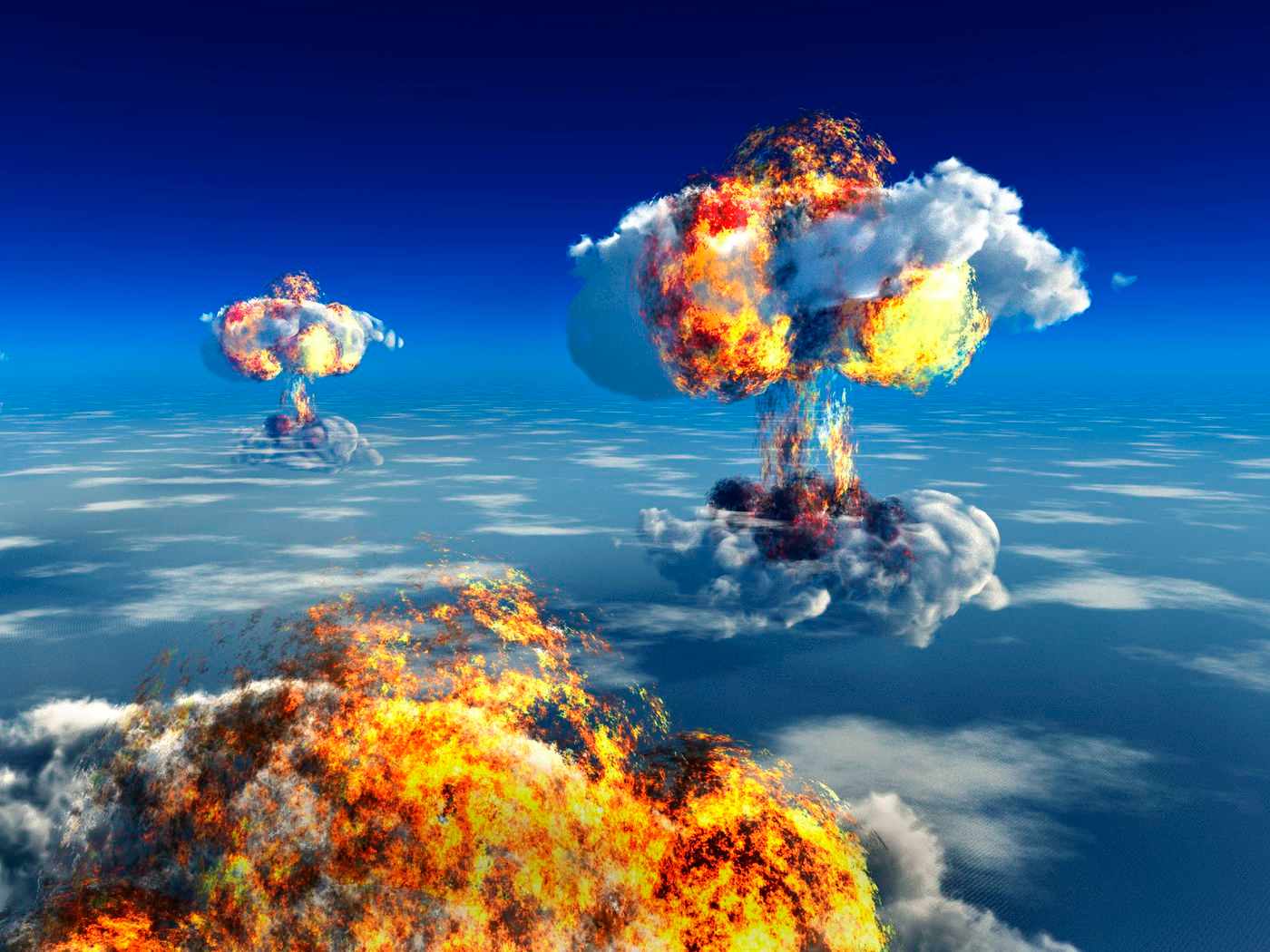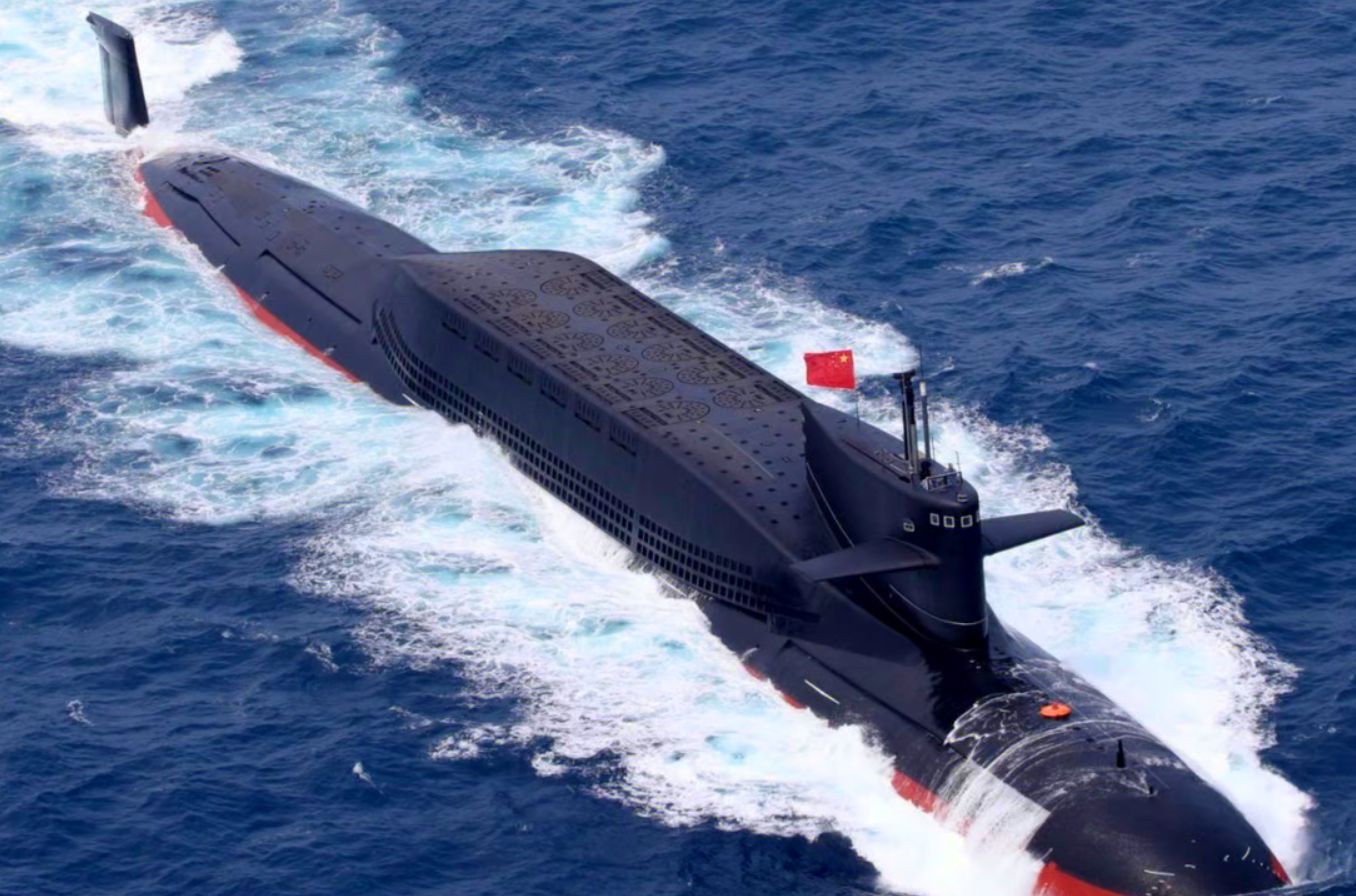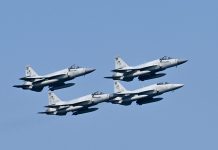If on January 24, the “Doomsday Clock” was set at 90 seconds to midnight, reasons included not only the Russian invasion of Ukraine, climate crisis, and biological threats but also the increased risk of nuclear escalation encouraged by China and the countries it is supporting to develop and increase nuclear and missile technologies. Countries garnering such Chinese support include North Korea, Pakistan, and Iran.
Similarly, a day earlier – on January 23 – the US Congressional Research Service “In Focus” report elaborated on the Chinese nuclear and missile Proliferation activities, including the threat of Chinese acquisition of US-origin nuclear technology.
The report cited how the Chinese government has ended its direct involvement in transferring nuclear and missile-related items, but Chinese-based companies and individuals continue to export goods relevant to those items, particularly to Iran, Pakistan, and North Korea.
The report also raised concerns about entities operating in China that provide other forms of support for proliferation-sensitive activities, such as illicit finance and money laundering.
It may be noted that Doomsday Clock’s time is set by the “Bulletin of the Atomic Scientists” Science and Security Board with the support of the Bulletin’s Board of Sponsors, which includes 10 Nobel Laureates. Previously, the Doomsday Clock had been set at 100 seconds to midnight since 2020.
The Doomsday Clock was created in 1947 by the Bulletin of the Atomic Scientists to convey how close humanity is to destroying itself. Designed by painter Marty Langsdorf, the Clock has become an international symbol of the world’s vulnerability to catastrophes from nuclear weapons, climate change, and disruptive technologies.
According to the Bulletin of the Atomic Scientists’ Science and Security Board, China’s considerable expansion of its nuclear capabilities is particularly troubling, given its consistent refusal to consider measures to enhance transparency and predictability.
In this regard, the US Defense Department claims that Beijing may increase its arsenal five-fold by 2035 and “could soon rival the nuclear capabilities of the United States and Russia, with unpredictable consequences for stability.”
It expresses concerns that the United States, Russia, and China are now pursuing full-fledged nuclear weapons modernization programs, setting the table for a dangerous new “third nuclear age” of competition.
China’s nuclear arsenal appears to be expanding substantially, with its current program to modernize and update its nuclear weapons moving at an unprecedented speed and scale.
Its growing disputes over issues like human rights, democratic values, the rule of law, and international norms seem to make China come under the notion that Western countries are deliberately creating trouble and coming up with excuses to demonize and contain China, fearing that the country’s rise could challenge the West’s dominance in the international system.
And Beijing perhaps feels that the only solution is to consolidate its power further until Western countries acknowledge China’s success and strength are beyond doubt, something that can be provided best by a bigger and highly modernized nuclear arsenal.
That would make the country’s rivals respect China and exercise more self-restraint when dealing with Beijing, it is said.
The Report of the US Congressional Research Service is much more elaborate on the Chinese role in spreading nuclear proliferation, particularly its lack of transparency and double standards.

A party to the Nuclear Nonproliferation Treaty (NPT) as a nuclear-weapon state (NWS), China is supposed not to transfer nuclear weapons to “any recipient whatsoever” or to “in any way … assist, encourage, or induce any” non-nuclear weapon state “to manufacture or otherwise acquire nuclear weapons.”
But, the report says that though the Chinese government has ceased direct involvement in nuclear-related proliferation and transfers of complete missile systems of late, Chinese entities have continued to engage in proliferation and that there are “weaknesses” in China’s export control system.
The report mentions how “Chinese entities” have continued “to supply MTCR-controlled items to missile programs of proliferation concern, including those in Iran, North Korea, Syria, and Pakistan.”
Accordingly, the United States has continued to sanction Chinese entities for proliferation. For example, on November 25, 2020, the State Department imposed sanctions on two Chinese entities “for transferring sensitive technology and items to Iran’s missile program.
Earlier, the Department of the Treasury had blocked US assets of, and prohibited transactions with, a Chinese coal company for allegedly using foreign exchange generated from the sale of North Korean coal to purchase “nuclear and missile components” for North Korea.
Chinese proliferation- behaviors include money laundering, the provision of illicit financial services, and illegitimate procurement by entities operating within China. According to a 2018 Department of the Treasury report, “Chinese entities and individuals” have engaged in proliferation financing activities “for the benefit of” Iranian and North Korean weapons of mass destruction (WMD) programs.
A 2017 Department of the Treasury report similarly assesses that North Korea uses and maintains a network of financial representatives, primarily in China, who operate as agents for North Korean financial institutions.
These representatives orchestrate schemes, set up front or shell companies, and manage surreptitious bank accounts to move and disguise illicit funds, evade sanctions, and finance the proliferation of North Korea’s WMD and ballistic missile programs.
Then-Deputy Assistant Secretary of State Alex Wong asserted during a November 2020 speech that “China hosts no less than two dozen North Korean WMD and ballistic missile procurement representatives and bank representatives.”
China’s construction of civil nuclear reactors in Pakistan has been another congressional concern. China has constructed four power reactors in Pakistan and is building two additional reactors. Pakistan has IAEA safeguards agreements in force for all of these reactors.
However, the guidelines of the Nuclear Supply Group (NSG), of which China is a member, prohibit such projects in Pakistan, which lack IAEA safeguards on all of the country’s nuclear facilities. Islamabad’s nuclear weapons facilities are not safeguarded.
The United States argues that only the first two reactor projects are consistent with China’s NSG commitments; Beijing and Islamabad concluded contracts for these reactors before China joined the NSG in 2004.
As it is, it is an open secret that Pakistan and North Korea have a defense technology cooperation with Pakistan, with China often playing the role of mediator and guarantor. This has resulted in North Korea supplying Rodong Missiles to Pakistan and getting Pakistan’s help in developing nuclear technologies.
Besides, China has always stood behind Pakistan even though Abdul Qadeer Khan, the father of Pakistan’s nuclear program, was, in 2003, found to have traded know-how and technology with Iran, Libya, and North Korea. Certain nuclear materials supplied to the Pakistan Atomic Energy Commission by the Suntech Technology Company Limited of China in recent years had been diverted to North Korea in violation of the sanctions imposed by the UN Security Council.

Incidentally, a package originating in Pakistan and containing uranium was seized recently (December 29) at Heathrow Airport in London by the UK Border Force personnel. However, notwithstanding Pakistan’s track record in proliferation, China has been supporting Islamabad’s plea for admission into the Nuclear Suppliers Group (NSG), though some point out that China is doing all this only to block India’s bid to get a seat in the 48-member export control regime.
Be that as it may, China’s role in the growing proliferation of nuclear and missile technologies in various parts of the world is likely to be under greater international scrutiny now that the war in Ukraine is being increasingly interpreted as a result of Kyiv’s folly in 1992 of surrendering its nuclear weapons.
The theory here is that nuclear weapons guarantee the security and survival of a nation and that had Ukraine retained nuclear weapons following the dissolution of the Soviet Union, Russia would have never dared to attack it.
That being the case, more and more countries will naturally opt for nuclear weapons to secure their independence and sovereignty, so runs the argument. And here, China could fish in the troubled water by being “the God Father” to all those nuclear aspirants who share the philosophy of a less US-dominated world, it is feared.
- Author and veteran journalist Prakash Nanda has been commenting on politics, foreign policy on strategic affairs for nearly three decades. A former National Fellow of the Indian Council for Historical Research and recipient of the Seoul Peace Prize Scholarship, he is also a Distinguished Fellow at the Institute of Peace and Conflict Studies.
- CONTACT: prakash.nanda (at) hotmail.com
- Follow EurAsian Times on Google News




